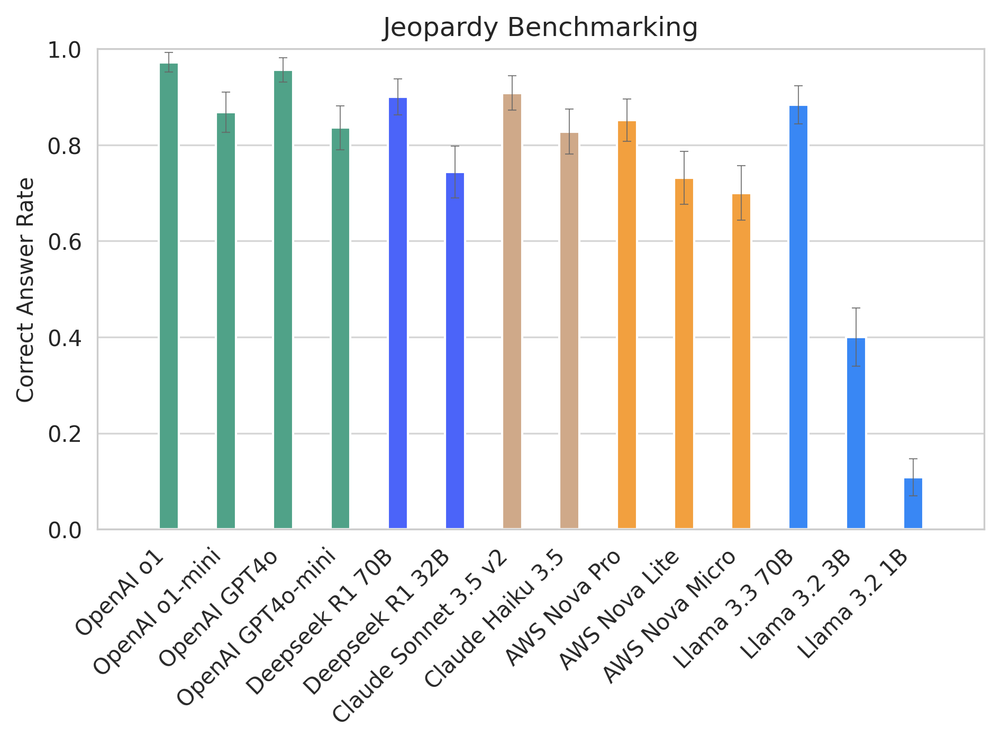During my PhD, the world of industry was mysterious, and sometimes almost felt taboo. Anything outside of academia seemed distant and different. This lack of knowledge added a lot of anxiety and uncertainty when I was navigating the transition from academia to industry.
However, after many years working as a Data Scientist in both large and small companies, I came to realize there were surprisingly many similarities between my PhD experience and industry experience. Of course, everyone's mileage will vary, depending on their research field and work environment. But perhaps knowing that the industry world is not all that different from academia can ease your concerns if you are looking for opportunities beyond the ivory tower.
1. You Can Still Go To Conferences!
Attending conferences were some of the most memorable experiences of my PhD. I got to visit new cities, hear about cutting-edge research, and present my work (which oftentimes meant standing nervously in front of my poster).
I initially thought the conference culture was unique to academia, but I was very wrong. Data Scientists often attend and present at industry conferences, tech meetups, and workshops. These events serve similar purposes: sharing knowledge, networking, and staying current with industry trends. Depending on your interests, there are so many events to choose from, from broad data science conferences to niche meetups focused on specific technologies or domains.
The skills you develop in presenting your research and engaging with peers at academic conferences translate remarkably well to industry settings. Whether you're explaining your latest machine learning model or discussing data privacy challenges, the ability to communicate complex ideas clearly and engage in meaningful discussions remains invaluable.
2. Your Experience is Primarily Shaped by a Small Circle
During my PhD, despite being part of a large university, my daily interactions revolved around a core group of 5-10 lab mates. We worked together, ate lunch together, and enjoyed social activities outside of work.
This is not all that different when you're working in a company. Even if the company has tens of thousands of employees worldwide, your day-to-day work typically involves close collaboration with a small team of colleagues.
More importantly, there is one person that plays an outsized role in your experience. In academia, this person is your PI (Principal Investigator) or thesis advisor. In industry, this person is your direct manager.
This is not just an anecdotal observation. Research has consistently shown the pivotal role of the direct manager in employee satisfaction, work performance, and career progression (1, 2). As the saying goes, "People don't quit bad jobs, they quit bad bosses."
What does this mean for you? If given an opportunity to choose, evaluate the team you will be working with, and put extra consideration on the team lead. Such consideration should be weighted even higher than other organizational factors, as your daily interaction with your team will likely play a stronger role in your productivity and success.
Moreover, invest in fostering these relationships, and seek connections beyond your immediate team. Just as in academia where collaborations can lead to breakthrough research, in industry, a strong network can open doors to exciting projects and career opportunities.
3. Choosing the Right Field Can Boost Your Career
Besides choosing the right team to work with, choosing the right field matters as much in PhD as it does in industry.
In academia, certain research areas become "hot topics," attracting more funding, publications, and career opportunities. Similarly, in the data science industry, some domains experience rapid growth and increased demand for talent. Beyond data science, in a corporate setting, certain projects or technologies may become more prioritized, which means more resources and higher visibility.
When you're in a thriving field, you will find more opportunities for impactful work, career advancement, and even job satisfaction. Rising tide lifts all boats.
This doesn't mean you should go and chase every new trend. It also doesn't mean you should forego specific fields you're passionate about. Passion can fuel innovation and drive you to excel even in challenging environments. Just remember that while individual genius is great, it can be difficult to overcome industry trends. Even brilliant work in a declining field might struggle to gain recognition.
So be strategic about your career choices. Balance your passion, strengths, and interests with opportunities that are available to you.
4. You Will See Similar Project Lifecycles
After a few years in industry, I began to feel the rhythm of project lifecycles. And it's not all that different from the academic research projects.
In both settings, you start with a problem or question. You then dive into literature review or internal documentation or market research to understand the current state of knowledge. Next comes the hypothesis formation, followed by experiment design, data collection, and analysis. Finally, you interpret results, draw conclusions, and make presentations to communicate your findings.
Even the iterative nature of projects is similar. Just as you might revise your research methods based on preliminary results in academia, in industry, you often refine your models or adjust your approach based on initial findings or stakeholder feedback.
The main difference? The pace. Academic projects are measured in years. Industry projects move a lot faster, measured in months or even weeks. You are expected to deliver results more frequently, but this can accelerate your learning as there are shorter feedback loops. Nevertheless, the core process of methodically approaching a problem, testing ideas, and deriving insights remains remarkably similar.
5. Figuring Out Product-Market Fit (PMF) is Like a Research Problem
This last one is very specific to startups, and particularly, very early stage startups. As someone drawn to the 0-to-1 phase of company building, I've noticed a striking parallel between the process of finding Product Market Fit (PMF) and conducting academic research.
In the startup world, PMF is the holy grail - that magical moment when your product truly resonates with the market (I also describe it in another post about startups). But here's the kicker: there's no set recipe for achieving it. Much like a novel research problem, the path to PMF is often unclear, filled with ambiguity, and requires constant experimentation. As Professor Uri Alon describes it, science demands a leap into the unknown. So does figuring out PMF.
This is where PhD holders might have a superpower they don't realize. Years of training in navigating ambiguity, iterating on hypotheses, and finding structure in seemingly chaotic data sets perfectly prime us for the PMF challenge. In research, we're used to trying multiple approaches, facing numerous dead ends, and persistently pushing forward until we find something that works. Sound familiar, startup founders?
Your PhD experience has trained you to think critically, adapt quickly, and persevere through uncertainty. When coupled with business acumen, this skill set can be truly powerful. In fact, many startups have been founded by PhDs. They not only created successful companies but ignited brand new markets. Consider Coursera and Udacity, which pioneered online education, Duolingo which revolutionized gamified learning, and DeepMind which pushed forward the frontier of AI.
So, if you're a PhD considering the leap into startups, especially in those early, formative stages, know that your research experience might be more relevant than you think. The journey to PMF might just feel like home, or lab (were you able to tell the difference between home and lab during your PhD?).

In Conclusion
There can be a lot of fear and uncertainty when you're transitioning from academia to industry. A lot of it comes from thinking industry is totally different, and feeling ill-equipped to handle the challenges of the job. I hope these similarities can alleviate some of your concerns. Moreover, you should know that your years of academic training is in fact quite relevant and valuable in an industry setting too!








